
To be listed on the CAMPOSOL TODAY MAP please call +34 968 018 268.

Guidelines for submitting articles to Condado Today
Hello, and thank you for choosing CondadoToday.com to publicise your organisation’s info or event.
Condado Today is a website set up by Murcia Today specifically for residents of the urbanisation in Southwest Murcia, providing news and information on what’s happening in the local area, which is the largest English-speaking expat area in the Region of Murcia.
When submitting text to be included on Condado Today, please abide by the following guidelines so we can upload your article as swiftly as possible:
Send an email to editor@condadotoday.com or contact@murciatoday.com
Attach the information in a Word Document or Google Doc
Include all relevant points, including:
Who is the organisation running the event?
Where is it happening?
When?
How much does it cost?
Is it necessary to book beforehand, or can people just show up on the day?
…but try not to exceed 300 words
Also attach a photo to illustrate your article, no more than 100kb

Casa-Museo Miguel Hernández
The humble beginnings of the poet who died for his political beliefs
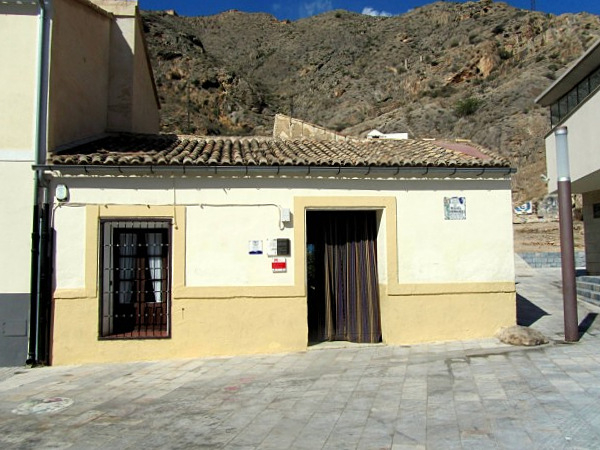 The former home of poet Miguel Hernández, who died in 1942 while imprisoned for his outspoken opposition to the nationalist cause in the years following the Spanish Civil War, has now been opened as a place of homage and a museum not only to Miguel Hernández himself but also to the way of life in the early twentieth century in this part of Spain.
The former home of poet Miguel Hernández, who died in 1942 while imprisoned for his outspoken opposition to the nationalist cause in the years following the Spanish Civil War, has now been opened as a place of homage and a museum not only to Miguel Hernández himself but also to the way of life in the early twentieth century in this part of Spain.
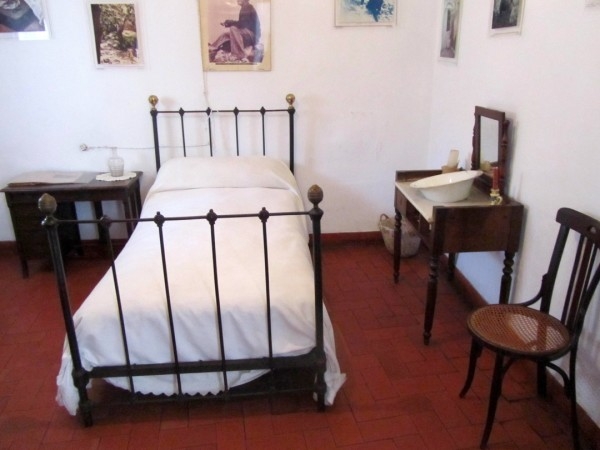
The first word which springs to mind in describing the house is “small”, and quite possibly the second world would be “humble”. Surrounded by impressive monuments and ornate architecture, this is nothing more than a single-storey dwelling with a small plot of land behind it. Miguel Hernández’s family was poor, but no poorer than the neighbours – his father was a goatherd and his mother a housewife, looking after the four of her seven children who had survived infancy.
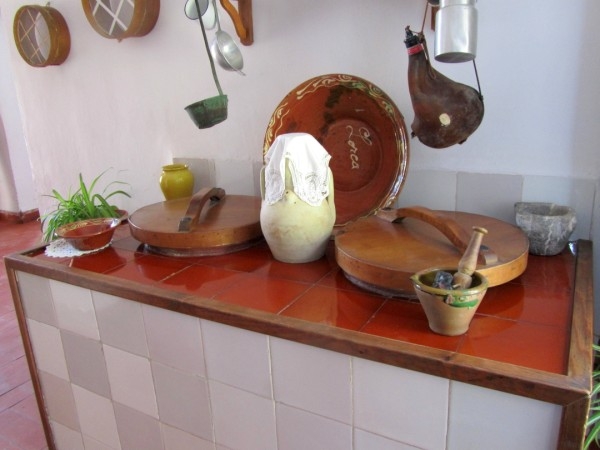
The layout of the house is so simple it barely needs describing. There are three bedrooms, two small living-rooms and a kitchen area, all of which have been decorated with furniture typical of the era, although only the washstand actually belonged to the poet’s family. At the rear of the house there is an upstairs grain store.
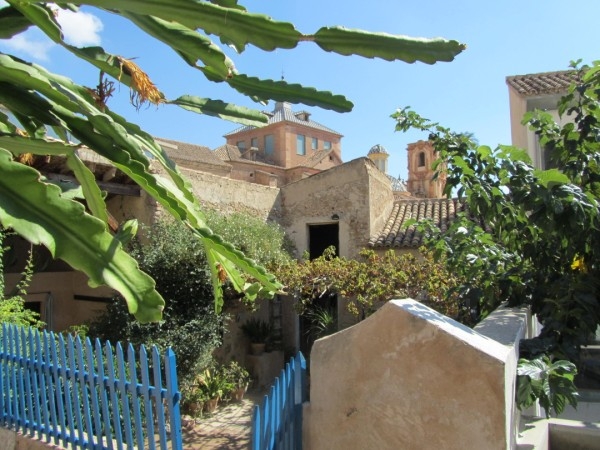 Outside is a latrine and a tiered garden, which includes small beds where vegetables would have been grown and a tiny shed which housed the family goats, as well as a fig-tree, a well and a
Outside is a latrine and a tiered garden, which includes small beds where vegetables would have been grown and a tiny shed which housed the family goats, as well as a fig-tree, a well and a 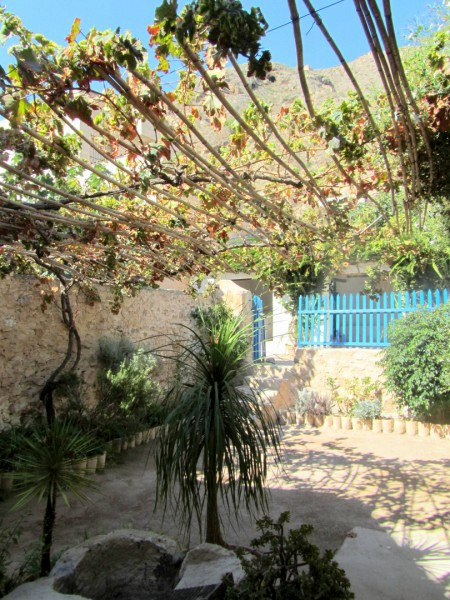 woodshed. From the garden it is possible to see the tower and dome of the nearby Colegio Santo Domingo and on the other side the steep mountainside on which it is possible to make out a small cave in which we are told the young Miguel sat with his books, looking down on his parents working in the garden below and at the same concealing the love of poetry which angered his father.
woodshed. From the garden it is possible to see the tower and dome of the nearby Colegio Santo Domingo and on the other side the steep mountainside on which it is possible to make out a small cave in which we are told the young Miguel sat with his books, looking down on his parents working in the garden below and at the same concealing the love of poetry which angered his father.
He received a basic school education but was encouraged to explore his interest in literature by a local priest, who encouraged him to read Spanish classics and aim to make a living from literature, a path bitterly opposed by his father.
To read his story, Click Miguel Hernández, the poet of Orihuela
The property was acquired by the Town Hall in 1981, and the museum opened its doors to the public on 28th March 1985.
One of the most inspiring monuments to Miguel Hernández is the series of murals in the District of San Isidro, a vibrant series of murals painted at the beginning of the transition to democracy following the death of General Franco. Hernández was an outspoken Republican sympathizer, paying for his opinions with his life. Click for Murales de San Isidro
Currently the opening hours are as follows:
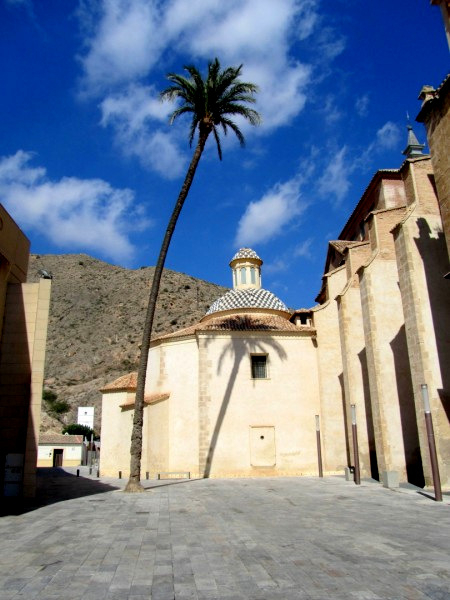 Tuesday to Saturday 10.00 to 14.00 and 16.00 to 19.00 (Jun1 to September 30 17.00 to 20.00), Sundays 10.00 to 14.00 only. On Mondays the house is closed to the public.
Tuesday to Saturday 10.00 to 14.00 and 16.00 to 19.00 (Jun1 to September 30 17.00 to 20.00), Sundays 10.00 to 14.00 only. On Mondays the house is closed to the public.
Location:
The house is located in the Calle Miguel Hernández, popularly known in the city as the Calle de Arriba (it runs around the mountain at the top of the town). It’s the last house before the street ends at the Colegio de Santo Domingo and the Centro Hernandino.
Click for map, Calle Miguel Hernández, Orihuela


